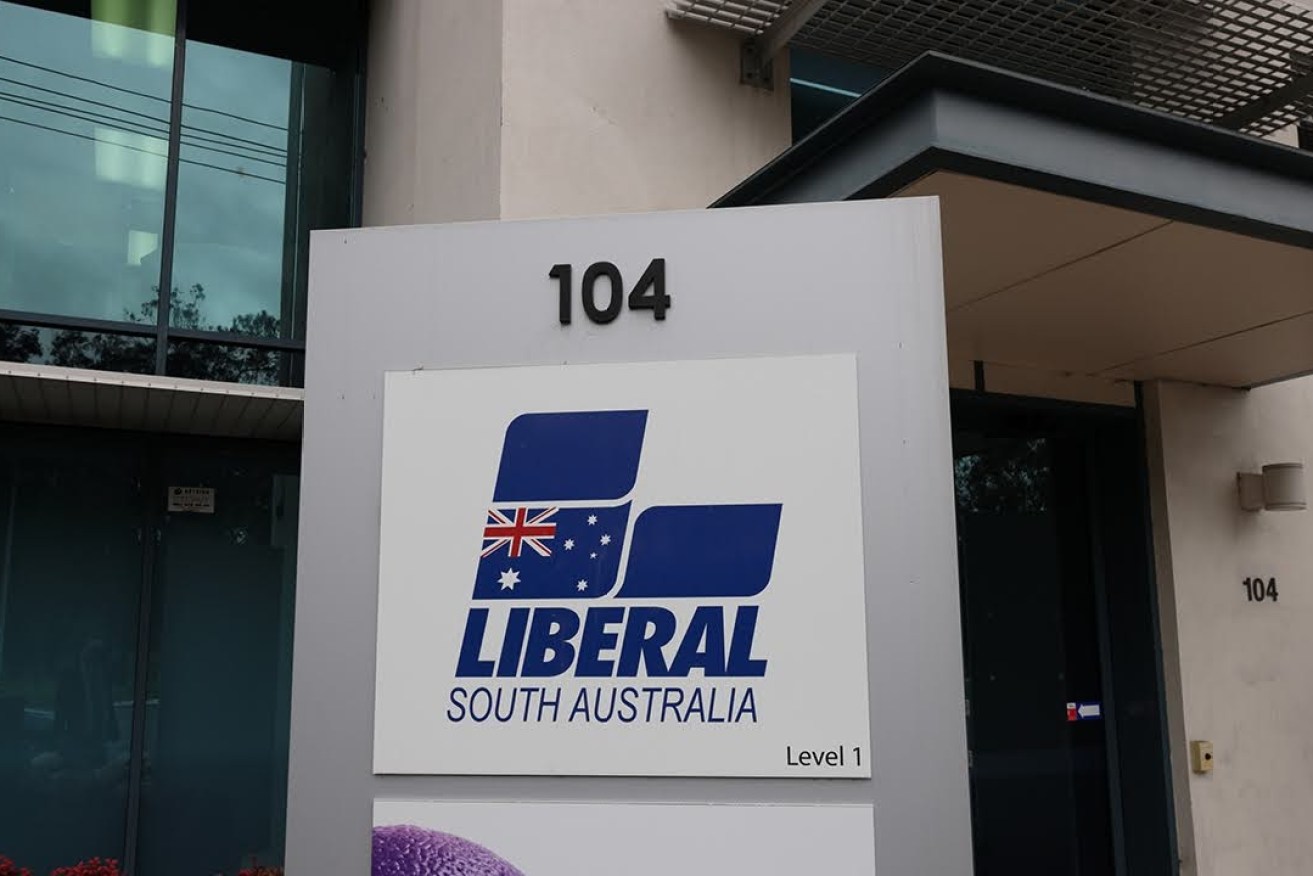Individuals biggest SA Lib donors as unions back Labor
Wealthy individuals, property developers and a defence firm are among the biggest donors to the SA Liberal Party, while unions remain Labor’s biggest backers, according to the Australian Electoral Commission’s (AEC) annual donation disclosures.

SA Liberal HQ. Photo: Tony Lewis / InDaily
Pelligra Group, which is redeveloping the old Holden site, donated $59,150 to the Liberals.
Fellow property developer Walker Corporation, the developer of the $663 million Festival Plaza project, donated $50,000.
Wealthy Adelaide couple Ian and Pamela Wall each contributed $150,000 to the Liberals, while SA Power Networks boss Rob Stobbe gave $25,000.
Chinese businesswoman Sally Zou was again a major donor to the Liberals, with her Transcendent Australia Pty Ltd donating $31,922 in the 2020-21 reporting period.
The Australian branch of US defence contractor Raytheon donated $43,000, while the SA wing of liquor and gambling lobby group the Australian Hotels Association donated $34,000, and SportsBet donated $25,000.
The AHA also gave Labor also $27,163 in a series of small donations, none of which exceeded the minimum $14,300 threshold to be listed on the political party’s main receipts page on the AEC website.
The biggest donation to Labor was $180,000 from the Shop, Distributive and Allied Employees Union, which controls the party’s Right faction.
Opposition Leader Peter Malinaskaus, the former head of the union, last week pledged to look into banning private donations by businesses, individuals and unions.
Labor also received $91,589 from fundraising arm SA Progressive Business Inc, and $20,000 from the Southpaw Social Club, the effective trading name of the Left PLUS (Progressive Left Union and Sub-Branches) faction.
The SA branch of the United Workers Union donated $18,819.
The Centre for Public Integrity highlighted the delays in public release of political donations, calling for real-time disclosure reforms for donations over $1000.
Malinauskas pledged last week to move towards abolishing political donations from individuals, businesses and unions for state elections if he wins government.
The Labor leader said he would look to ban donations but noted that “implementing such a change would present complex legal and policy challenges”.
He promised to commission the Attorney-General’s Department “to undertake a detailed analysis of the issues and provide policy advice”, with the Solicitor-General to “provide legal advice on potential legal challenges”.
He said “if we can do one thing to improve public confidence in our public institutions it is this – we should ban all donations for elections”.
“No more private money for political parties campaigns,” he said.
“Not business money. Not union money.”
Premier Steven Marshall at the time described Labor’s proposal as “just another thought bubble” from the opposition leader.
“The reality is we do have donation legislation in South Australia. It’s fairly controlled and it’s highly transparent,” Marshall said.
Under SA’s current laws, political parties and candidates must create a designated account for election campaigns.
Candidates and parties also receive public funding based on the percentage of the vote they attract.
Noah Schultz-Byard, SA Director at progressive thinktank The Australia Institute, told InDaily that the “growing influence” of US-style political donations in Australian politics had created a system of “payment for access” to politicians.
“Elections should be contests of ideas, not auctions where the highest bidder gets the spoils,” he said.
Schultz-Byard welcomed Labor’s proposal in late January to ban private political donations for South Australian state elections, noting the Greens also supported such a move.
“If implemented well, such dramatic reform could have positive prospects for improving political outcomes,” he said.
He noted the “devil will be in the detail” of any such plan, which should be accompanied by tighter caps on spending and take care to avoid a number of pitfalls.
“How would new political parties form if all funding is based on past performance,” he asked. “There are also questions around wealthy individuals — could they opt out entirely and just fund their own campaigns?”




